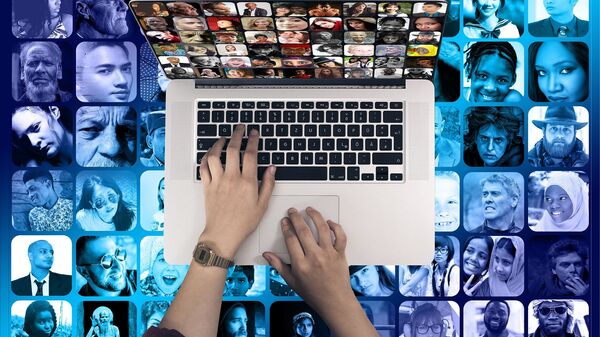A research group at the Federal Institute of Educational Development of the Russian Presidential Academy of the National Economy and Public Administration (FIRO RANEPA) has studied the risks and prospects of digital trends in education.
Digitisation Dictates the Rules
Researchers from the RANEPA Federal Institute of Educational Development have presented a project, “Didactics Concept of Digital Vocational Education and Training”, which outlines ways of organising a personalised digital educational process based on a field of educational theory – Digital Didactics.
The authors of the study note that today the digital economy is the main “customer” for vocational education and training. The analysis of promising markets shows that within the next 3-5 years, graduates of various fields will need to master digital production technology.
Specialists are confident that as routine operations become more digitised, there will be a growing demand for “non-mechanical” competencies that involve setting goals for digital devices, expert analysis based on critical thinking, or complex communication, for example, in contracts and sales.
The study stresses that given the dynamically changing technological and socio-economic realities of modern society, educational requirements facing university graduates are also constantly being updated. In this regard, educational models that would successfully function under conditions of “floating” didactic purposes are required.
Against this backdrop, RANEPA researchers have pointed to a high risk of digital over-optimism, which could lead to the dehumanisation of education as a social institution. They believe this can be most acutely demonstrated by substituting the digitisation of education with ineffective “digitising”.
Instead of personalised education aimed at developing competencies, scientists fear that in practice, the use of irrelevant traditional teaching methods may continue, using information and communication technologies available to the teacher at hand, the effectiveness of which in such a situation will be at the very least questionable.
Generation Z Calls For Interactive Dialogue
The authors of the study believe that building a digital educational process requires the development of a new field of educational research – Digital Didactics.
The key factors determining the formation of new approaches to learning, according to the authors, are three phenomena of the 21st century: the digital generation, which has special socio-psychological characteristics, new technologies that form the digital environment, and, finally, the digital economy and its requirements for human resources.
Illustrating the problem of the unsuccessful digitisation of education, researchers analyse several cases, including the events at the Brooklyn's Secondary School for Journalism, where in November 2018, high school students held a protest against the online learning platform Summit Learning.
According to frustrated students, the network project, which covers 380 schools and 55,000 schoolchildren in the United States, completely excludes most human interaction. As the protesters stated, live support of teachers and discussions with classmates are much more important for the development of critical thinking than a fixed seat at the monitor.
These and other examples, researchers believe, demonstrate that the success of professional and personal self-determination and social adaptation of young people requires a flexible combination of digital, material and pedagogical technologies. Creating a digital educational process using web-based didactics will allow us to overcome the current transitional period, they say.
From Repression to Effective Monitoring
The major condition for the emergence of next-generation education, according to scientists, is the development of teaching techniques.
First of all, it concerns the implementation of distance learning, complex case studies, blended learning, flipped learning, and project method. Simulators and augmented reality tools should also be used to develop professional and advanced capabilities.
It is noted that the use of the game environment, the ability to cater to the individual pace and rhythm of workers, as well as various interactive features, such as the student's choice of the starting difficulty level of tasks, would help to improve, in the near future, the effectiveness of learning using educational materials.
The authors of the study paid special attention to the problem of digital and pedagogical assessment technologies, which would ensure the objectivity and transparency of tests while maintaining stable educational motivation.
The experts prompted their audience to abandon the traditional assessment, including due to its “repressive functions”, and paid attention to the inclusive assessment systems that imply instantaneous feedback between the teacher and the students through the use of IT-tools.
According to research team leader Vladimir Blinov, head of the Research Centre for Vocational Education and Qualifications Systems of FIRO RANEPA, Big Data technologies allow educators to carry out a personalised monitoring of the educational process, tracking the dynamics of changes and conducting a comparative analysis. The teacher, equipped with operational information on the quality of the tasks, will be able to more effectively direct the movement along the educational route.
Other ways of assessing learning performance, such as personal digital footprint management or multi-layered monitoring of learning progress based on cumulative assessment technologies (e.g., ranking or portfolio), can also help to make learning even more exciting.
The study concludes with a glossary of the key concepts of the new digital social reality. Scientists are convinced that the strategy of working with the digital “Generation Z” should be based on the fact that it is almost impossible to involve them in the traditional educational process, and, therefore, teachers should be more attentive to current trends.



